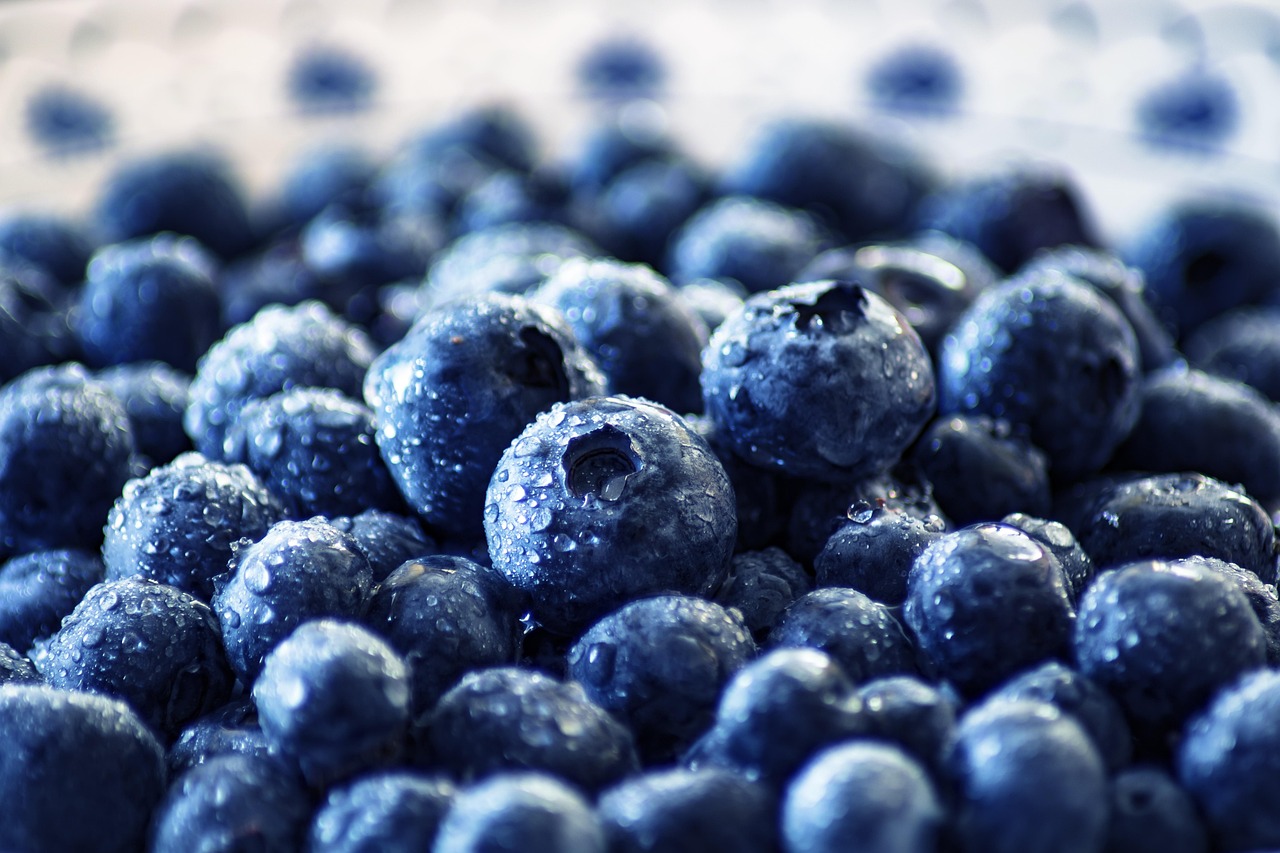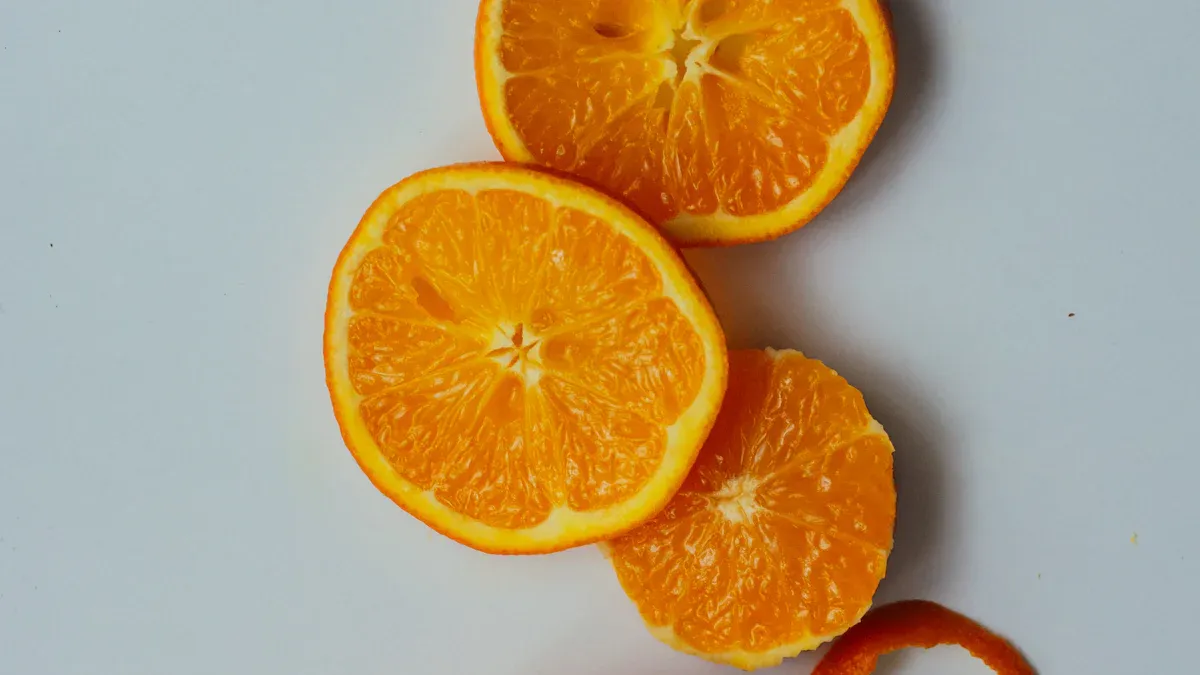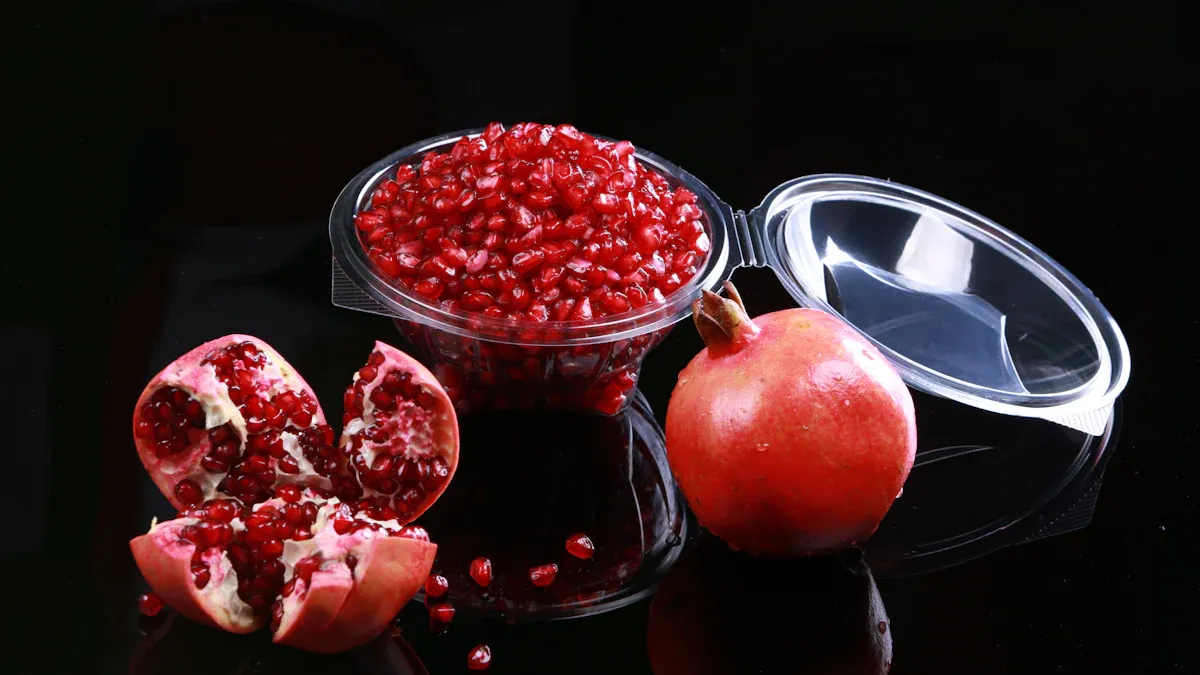How Antioxidants Help in Preventing Cancer

Have you ever wondered how your body fights off harmful damage every day? Antioxidants are like tiny superheroes inside you. They neutralize free radicals, unstable molecules that can harm your cells. By doing this, antioxidants reduce oxidative stress, which is linked to cancer development.
Here’s how it works: antioxidants donate electrons to free radicals, stopping them from damaging your DNA, proteins, and lipids. This process protects your cells and lowers the risk of cancer. Studies even show that increased levels of antioxidants can prevent the kind of cellular damage associated with cancer.
However, not all approaches to boosting antioxidants are equally effective. For example:
Nine global trials on antioxidant supplements found no clear evidence they prevent cancer.
A U.S. review also concluded that vitamin and mineral supplements, including antioxidants, don’t guarantee cancer prevention.
So, focusing on natural sources of antioxidants might be your best bet. Understanding the role of antioxidants in cancer prevention can help you make smarter choices for your health.
Key Takeaways
Antioxidants keep your cells safe by stopping harmful free radicals.
Fruits and vegetables work better than pills to help prevent cancer.
Eating many colorful fruits and veggies gives you more antioxidants.
Talk to a doctor before using antioxidant pills, especially if sick.
Simple changes, like drinking green tea instead of soda, can help.
Understanding the Role of Antioxidants in Cancer Prevention
What Are Antioxidants?
Antioxidants are compounds that protect your cells from damage. They work by neutralizing free radicals, which are unstable molecules created during normal metabolic processes or due to environmental factors like pollution and UV rays. Without antioxidants, these free radicals can cause oxidative stress, leading to cellular damage. Your body produces some antioxidants naturally, but you also rely on foods like fruits, vegetables, and grains to get more.
Think of antioxidants as your body’s defense team. They prevent oxidation, a process that can harm your DNA, proteins, and lipids. For example, Vitamin C acts as a scavenger, reducing harmful reactive oxygen species (ROS) and protecting your cells. Beta-carotene, found in carrots and sweet potatoes, has been linked to a lower risk of certain cancers, especially in smokers.
How Antioxidants Protect Cells
Antioxidants protect your cells in several ways. One key mechanism is by donating electrons to free radicals. This action neutralizes the free radicals without making the antioxidants themselves unstable. It’s like putting out a fire before it spreads.
Research shows that antioxidants also interact with cellular signaling pathways. For instance, they help regulate pathways like Wnt/β-catenin, which maintains cellular balance and prevents abnormal growth. By doing this, antioxidants reduce inflammation and oxidative stress, both of which are linked to cancer development.
Mechanism | Description |
|---|---|
Neutralizing Free Radicals | Antioxidants donate electrons to free radicals, reducing oxidative stress. |
Regulating Pathways | They downregulate pathways like Wnt/β-catenin, preventing abnormal growth. |
The Connection Between Antioxidants and Cancer Risk
So, how do antioxidants tie into cancer prevention? By reducing oxidative stress, they lower the chances of DNA damage, which can lead to mutations and cancer. Studies have shown that higher levels of antioxidants like Vitamin C and Vitamin E are associated with a reduced risk of cancers such as breast, bladder, and prostate cancer. For example, the ATBC study found that α-tocopherol (a form of Vitamin E) supplementation reduced prostate cancer incidence by 32%.
However, it’s important to note that not all studies agree on the benefits of antioxidants in supplement form. Nine clinical trials found no clear evidence that dietary antioxidant supplements prevent cancer. This might be because whole foods provide a combination of nutrients that work together, while supplements often isolate specific compounds.
To sum it up, antioxidants play a vital role in protecting your cells and reducing cancer risk. But focusing on natural sources like fruits and vegetables is the best way to reap their benefits.
Free Radicals and Their Impact on Health
What Are Free Radicals?
Free radicals are unstable molecules that form when atoms or molecules gain or lose electrons. They’re like tiny troublemakers in your body, constantly looking for stability. While your body produces free radicals naturally during processes like metabolism, external factors such as pollution, UV rays, and smoking can increase their levels.
Here’s the thing: free radicals aren’t all bad. They play a role in normal cellular functions, like fighting infections. But when their levels get too high, they can harm your cells. Reactive oxygen species (ROS), a common type of free radical, can damage DNA, proteins, and cell membranes. This damage can lead to serious health problems, including cancer.
Did you know? High levels of free radicals can result from exposure to environmental toxins or ionizing radiation, which may even cause cell death.
How Free Radicals Cause Oxidative Stress
When free radicals outnumber antioxidants in your body, oxidative stress occurs. Think of it as a tug-of-war where free radicals start winning. This imbalance leads to cellular damage. Free radicals steal electrons from healthy molecules, causing a chain reaction of instability.
Oxidative stress doesn’t just harm your cells. It also disrupts normal cellular processes, leading to inflammation and mitochondrial dysfunction. Over time, this damage builds up, increasing the risk of chronic diseases like cancer.
Antioxidants act as your body’s defense system. They neutralize free radicals by donating electrons, stopping the chain reaction. This is why maintaining a balance between free radicals and antioxidants is so important for your health.
Oxidative Stress and Cancer Development
Oxidative stress plays a significant role in cancer development. When free radicals damage DNA, they can cause mutations. These mutations may lead to uncontrolled cell growth, a hallmark of cancer. Additionally, oxidative stress can alter cell signaling pathways, promoting tumor growth.
Studies show that reactive oxygen species (ROS) are a major contributor to oxidative stress. They damage DNA and disrupt mitochondrial function, which can trigger cancer progression. While antioxidants can help reduce oxidative stress, research suggests that their effects depend on how they’re consumed. Whole foods rich in antioxidants seem to offer better protection than supplements.
Quick Tip: Eating a diet rich in fruits, vegetables, and whole grains can help you maintain a healthy balance of antioxidants and reduce oxidative stress.
Types of Antioxidants and Their Sources

Key Antioxidants and Their Benefits
Vitamin C
Vitamin C is one of the most powerful antioxidants you can include in your diet. It helps protect your cells by neutralizing harmful molecules and reducing oxidative stress. This can lower the risk of mutations that lead to cancer. Foods like oranges, strawberries, and bell peppers are packed with Vitamin C, making them excellent choices for boosting your antioxidant levels.
Vitamin E
Vitamin E plays a key role in protecting your cell membranes from damage. It’s found in foods like almonds, sunflower seeds, and spinach. However, studies like the SELECT trial have shown that taking high doses of Vitamin E supplements may increase the risk of prostate cancer. That’s why it’s better to get Vitamin E from natural sources.
Beta-Carotene
Beta-carotene, a type of carotenoid, is known for its ability to support healthy cells. It’s found in carrots, sweet potatoes, and kale. But here’s a surprising fact: a 1996 trial linked high doses of beta-carotene supplements to an increased risk of lung cancer in smokers. This highlights the importance of moderation and sticking to food-based sources.
Selenium
Selenium is another antioxidant that’s been studied for its potential in cancer prevention. It’s found in Brazil nuts, fish, and poultry. While some research suggests selenium may help reduce cancer risk, other studies, like the SELECT trial, have shown mixed results.
Effect on Cancer Prevention | Source | |
|---|---|---|
Beta-Carotene | Mixed results; potential risks at high doses | |
Vitamin E | Increased risk of prostate cancer in high doses | |
Selenium | Investigated for cancer prevention; mixed results |
Natural Food Sources of Antioxidants
Fruits and Vegetables
Fruits and vegetables are your best friends when it comes to antioxidants. Citrus fruits like oranges and lemons are rich in Vitamin C. Leafy greens like spinach and kale provide Vitamin E and beta-carotene. Sweet potatoes, tomatoes, and bell peppers are also excellent choices.
Nuts, Seeds, and Whole Grains
Nuts and seeds, such as almonds and sunflower seeds, are packed with Vitamin E. Whole grains like barley and brown rice contain selenium, which supports your body’s antioxidant defenses. Adding these to your meals can make a big difference.
Beverages Like Green Tea
Green tea is a fantastic source of antioxidants like catechins. These compounds help fight oxidative stress and protect your cells. Drinking green tea regularly can be a simple way to boost your antioxidant intake.
Why a Balanced Diet Matters
A balanced diet is the key to maintaining optimal antioxidant levels. Nutrients from fruits, vegetables, nuts, and grains work together to provide the best protection against oxidative stress. Studies show that relying on whole foods is more effective than taking high-dose supplements. By eating a variety of antioxidant-rich foods, you can support your health and reduce your cancer risk naturally.
Quick Tip: Aim for a colorful plate at every meal. The more variety in your fruits and vegetables, the better your antioxidant intake will be.
Antioxidant Supplements: Pros and Cons
Are Supplements as Effective as Whole Foods?
You might wonder if popping a pill can replace eating a plate of colorful fruits and veggies. The short answer? Not really. Research shows that antioxidant supplements like vitamin C, vitamin E, and beta-carotene don’t provide the same benefits as whole foods. Randomized trials have found little evidence that these supplements protect against chronic diseases like cancer or heart disease.
On the other hand, whole foods offer a mix of nutrients that work together to fight inflammation and oxidative stress. Observational studies suggest that diets rich in antioxidant-packed foods, such as berries and leafy greens, may help reduce cancer risk. This synergy of nutrients in whole foods is something supplements just can’t replicate.
Quick Tip: Instead of relying on pills, aim to include a variety of antioxidant-rich foods in your meals. Your body will thank you!
Risks of Overusing Antioxidant Supplements
Taking too many antioxidant supplements can do more harm than good. For example, a large trial involving heavy smokers found that beta-carotene supplements increased lung cancer risk, forcing the study to stop early. Another study combining beta-carotene with vitamin A showed similar results in smokers and asbestos-exposed individuals.
Even for non-smokers, the risks are real. The SELECT trial revealed a 17% higher risk of prostate cancer in men taking vitamin E supplements. Women in the SU.VI.MAX trial who took a mix of antioxidants, including vitamin C and vitamin E, experienced higher rates of skin cancer.
Note: More isn’t always better. Stick to natural sources of antioxidants to avoid these potential dangers.
Antioxidants and Cancer Treatment: What to Know
If you’re undergoing cancer treatment, you might think antioxidants could help. But studies suggest otherwise. Research by Ambrosone CB et al. found that taking antioxidant supplements during chemotherapy increased the risk of cancer recurrence and death in breast cancer patients.
Experts like Dr. Bergö warn against using antioxidants during treatment, especially for lung cancer and melanoma. Preclinical studies even suggest that antioxidants might promote tumor growth in some cases.
Important: Always consult your doctor before taking any supplements during cancer treatment. It’s better to play it safe.
Practical Ways to Boost Antioxidant Intake

Adding Antioxidant-Rich Foods to Your Meals
Boosting your antioxidant intake can be as simple as making smarter food choices. Start by adding more fruits, vegetables, nuts, and whole grains to your meals. These foods are packed with natural antioxidants that protect your cells and support overall health. For example:
Snack on strawberries, apples, or citrus fruits like oranges and grapefruits.
Add leafy greens like spinach or kale to your salads.
Include nuts like almonds or sunflower seeds in your breakfast or as a midday snack.
Swap white rice for whole grains like quinoa or brown rice.
Foods rich in Vitamin C, such as bell peppers, broccoli, and kiwi, are excellent options. Vitamin E sources like avocados and peanuts are also great additions. Observational studies suggest that diets high in these antioxidant-rich foods, like the Mediterranean diet, may help reduce inflammation and lower the risk of chronic diseases.
Quick Tip: Aim for a colorful plate. The more variety in your fruits and veggies, the better your antioxidant intake will be!
Simple Lifestyle Changes for Better Antioxidant Levels
Small changes in your daily routine can make a big difference. Start by replacing sugary snacks with antioxidant-rich options like fresh fruit or a handful of nuts. Drink green tea instead of sugary beverages. It’s loaded with catechins, powerful antioxidants that fight oxidative stress.
Cooking methods matter too. Steaming or lightly sautéing vegetables helps preserve their antioxidant content. Avoid overcooking, as it can reduce the nutrients in your food.
Did you know? The average antioxidant intake from fruits and vegetables in some populations is around 680 micromol per day. You can easily increase this by adding just one or two extra servings of fruits or veggies to your meals.
Consulting Experts for Personalized Nutrition Advice
If you’re unsure where to start, consider consulting a nutritionist or dietitian. They can help you create a personalized plan based on your health needs and lifestyle. This is especially important if you have specific health conditions or dietary restrictions.
Experts can also guide you on the right balance of antioxidants. While whole foods are the best source, they can help you decide if supplements are necessary and safe for you. Remember, high doses of supplements may not provide the same benefits as natural food sources and could even pose risks.
Important: Always talk to a healthcare professional before making major changes to your diet or taking supplements.
Antioxidants play a crucial role in protecting your cells from damage caused by oxidative stress. This protection helps lower your risk of developing cancer. While supplements might seem like a quick fix, they often lack the combined benefits of nutrients found in whole foods. Observational studies and randomized trials have shown mixed results regarding the effectiveness of supplements in cancer prevention.
Study Type | Findings |
|---|---|
Observational Studies | Mixed results regarding the association between dietary antioxidant supplements and cancer risk. |
Randomized Controlled Trials | No clear evidence of benefit from antioxidant supplements in cancer prevention. |
Systematic Reviews | Overall conclusion indicates lack of conclusive evidence supporting antioxidant benefits. |
Instead of relying on pills, focus on a diet rich in fruits, vegetables, nuts, and whole grains. Long-term studies, like the Linxian General Population Nutrition Intervention Trial, highlight the limited impact of supplements on cancer prevention.
Case-control and cohort studies show mixed results on antioxidants and cancer risk.
Nine global trials found no clear evidence that supplements prevent cancer.
The Linxian trial revealed no effect on esophageal or gastric cancer risk.
Small changes, like adding colorful produce to your meals or swapping sugary drinks for green tea, can make a big difference. By choosing natural sources and consulting experts when needed, you can take meaningful steps toward better health.
Remember: A balanced diet and consistent lifestyle changes are your best allies in cancer prevention.
FAQ
What are the best foods to include in an antioxidant-rich diet?
You can’t go wrong with colorful fruits and vegetables like berries, spinach, and sweet potatoes. Nuts, seeds, and green tea are also excellent choices. These foods provide a variety of antioxidants that work together to protect your cells.
Can antioxidant supplements replace whole foods?
Not really. Whole foods offer a mix of nutrients that supplements can’t replicate. Research shows that natural sources like fruits and vegetables are more effective at reducing oxidative stress and supporting overall health.
Are there risks to taking too many antioxidant supplements?
Yes, overusing supplements can backfire. High doses of beta-carotene or vitamin E have been linked to increased cancer risks in some studies. Stick to natural food sources and consult your doctor before taking supplements.
How do antioxidants help prevent cancer?
Antioxidants neutralize free radicals, reducing oxidative stress. This protects your DNA from damage and lowers the risk of mutations that can lead to cancer. They also regulate pathways that prevent abnormal cell growth.
Should you take antioxidants during cancer treatment?
It’s best to avoid them unless your doctor advises otherwise. Some studies suggest antioxidants might interfere with treatments like chemotherapy, potentially increasing the risk of cancer recurrence.
Tip: Always talk to your healthcare provider before making changes to your diet or taking supplements during treatment.
See Also
An In-Depth Overview of Various Cancer Types
Exploring Cancer Types Associated With AIDS
Recognizing Symptoms and Causes of Anal Cancer

